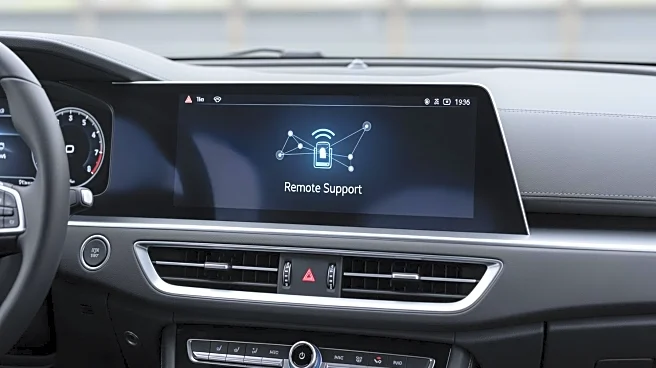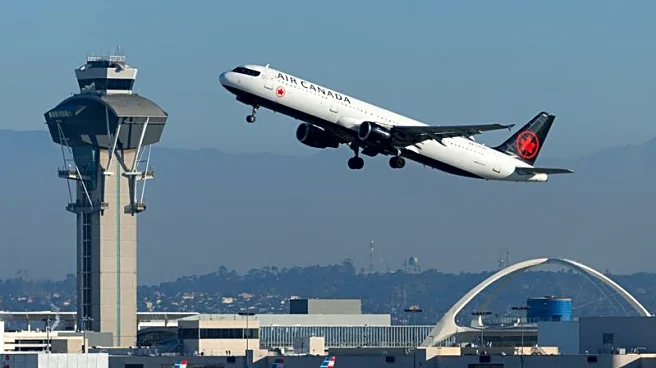What's Happening?
Tesla is set to introduce a new screenshare feature in its upcoming software update, version 2025.38. This feature will allow users to export their car's touchscreen display for remote viewing, as discovered
by a Tesla hacker known as 'green'. The screenshare function will be secured by a four-digit pin, ensuring privacy and security during remote access. While the specific use cases for this feature remain unclear, it is speculated that it could be used for remote support, similar to Apple's approach in resolving product issues. This development is particularly relevant for Tesla's Robotaxi service, where remote screen access could help address customer complaints in the absence of an onboard employee. The feature will be compatible with both AMD and Intel chip-equipped vehicles, broadening its accessibility across Tesla's range.
Why It's Important?
The introduction of a screenshare feature in Tesla vehicles represents a significant advancement in customer support and service capabilities. By enabling remote access to the car's touchscreen, Tesla can offer more efficient troubleshooting and support, potentially reducing the need for physical service visits. This could enhance the overall customer experience, particularly for users of Tesla's autonomous driving features, where real-time support may be crucial. Additionally, the feature could facilitate content creation and sharing, allowing users to document and share their driving experiences more easily. For Tesla, this innovation may strengthen its position in the competitive automotive market by showcasing its commitment to technological advancement and customer satisfaction.
What's Next?
As Tesla rolls out the screenshare feature, further details on its applications and benefits are expected to be released. The company may provide guidelines on how the feature can be utilized for various purposes, including customer support and content creation. Tesla owners and enthusiasts will likely explore the feature's potential, leading to new use cases and feedback that could inform future updates. The integration of this feature may also prompt other automotive manufacturers to consider similar innovations, potentially influencing industry standards for vehicle technology and customer service.
Beyond the Headlines
The screenshare feature raises questions about privacy and data security, as remote access to a vehicle's display could expose sensitive information. Tesla will need to ensure robust security measures to protect user data and prevent unauthorized access. Additionally, the feature's impact on Tesla's autonomous driving initiatives could be significant, as real-time support becomes more feasible. This development may also contribute to broader discussions on the role of technology in enhancing vehicle safety and user experience.










